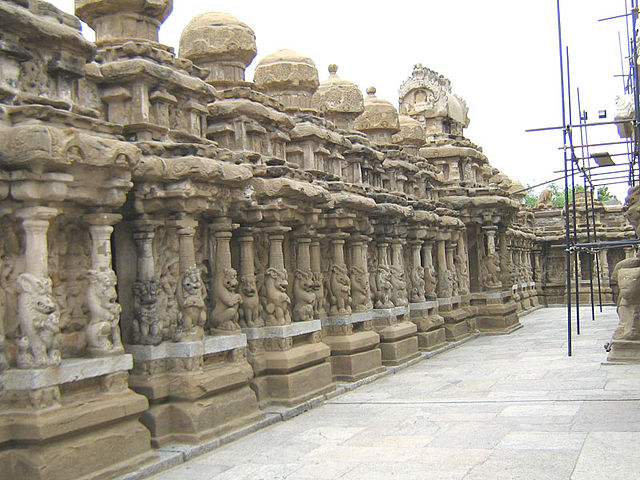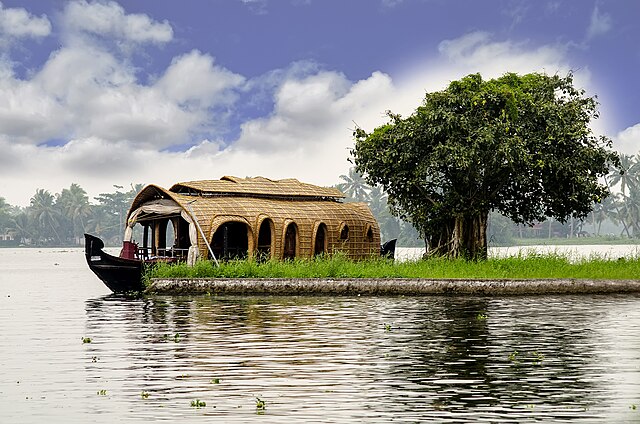The Pallava dynasty existed from 275 CE to 897 CE, ruling a significant portion of the Deccan, also known as Tondaimandalam. The Pallavas played a crucial role in shaping in particular southern Indian history and heritage. The dynasty rose to prominence after the downfall of the Satavahana Empire, whom they had formerly served as feudatories.
Vaikuntha Perumal Temple, Kanchipuram, Tamil Nadu, considered as the oldest temple, glorified in the Nalayira Divya Prabandham, the early medieval Tamil canon of the Alvar saints from the 500 to 800 CE. It is one among the 108 Divya Desams dedicated to Maha Vishnu.
Kailasanathar Temple, Kanchi one of the oldest temples in the city
Sculptures of the legends of pallavas in the Vaikuntha Perumal Temple, Kanchipuram
Inner court or the circumambulatory passage with 58 subshrines. Kailasanathar Temple, Kanchipuram
South India, also known as Peninsular India, is the southern part of the Deccan Peninsula in India encompassing the states of Andhra Pradesh, Karnataka, Kerala, Tamil Nadu and Telangana as well as the union territories of Lakshadweep and Puducherry, occupying 19.31% of India's area and 20% of India's population. It is bound by the Bay of Bengal in the east, the Arabian Sea in the west and the Indian Ocean in the south. The geography of the region is diverse, with two mountain ranges, the Western and Eastern Ghats, bordering the plateau heartland. The Godavari, Krishna, Kaveri, Tungabhadra and Vaigai rivers are important non-perennial sources of water. Chennai, Bangalore, Hyderabad, Coimbatore and Kochi are the largest urban areas in the region.
Image: Tirumala 090615
Image: Mysore Palace Left Angle
Image: Alappuzha Boat Beauty W
Image: Bangaram Island, Lakshadweep 20160325 DSC1780








